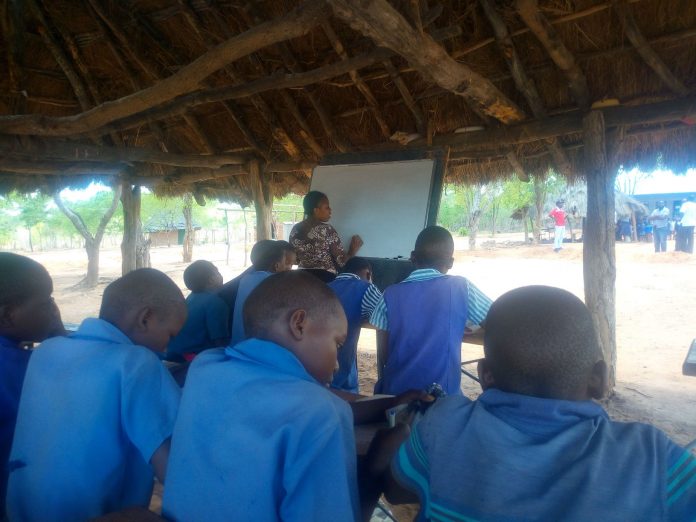Tawanda Marwizi
KARIBA is not only one of Zimbabwe’s premier tourist destinations but ranks among Africa’s best.
Famed for its beauty and wide range of tourist activities, Kariba not only provides aesthetics for its residents and visitors alike but a relatively comfortable life.
This is in sharp contrast to the living conditions that are experienced in its neighbouring rural communities.
This divide is best illustrated by the contrasting lives of teachers in Kariba urban and those in Nyaminyami rural district.
Teachers in Kariba have access to all the amenities of modern life.
On the other hand, their counterparts in Nyaminyami stay in pole and dagga houses and the setting in of the rain season brings dread to the teachers’ lives because most of the structures are rudimentary and can be easily destroyed.
At schools like Sawiramakwande in Siyakobvu teachers live in constant fear for their lives.
Last year a pole and dagga structure used as a classroom block fell apart though no casualties were recorded.
“These are our houses but it is very difficult for us to stay there especially in the rain and windy season because some of these structures are not even up to standard,” a local teacher said.
Established in 2012, Mutengu still struggles to get proper structures as most of the community members can’t afford to pay school fees.
“Parents here do not afford to pay school fees because there is hunger in this area. That makes our life difficult as teachers because the school struggles to construct proper structures for both teachers and the classroom blocks,” teachers at the school revealed recently.
Government has since started the recruitment of 5 000 teachers who will be deployed to several schools dotted across the country.
This has, however, raised questions on how areas such as Nyaminyami can accommodate the new staff with fears also of how both the old and the new teachers can be motivated to bring quality results under such conditions.
“When new teachers come the school just builds pole and dagga houses so that they can be accommodated. I think it is ideal for the government to start building proper structures for such schools so that teachers get proper accommodation and a good working environment,” they said.
The Minister of Primary and Secondary Education, Cain Mathema, said the government was in the process of constructing 2 000 schools across Zimbabwe and would consider areas such as Nyaminyami.
“We are constructing schools in different parts of the country. They are state of the art and since I am new to the office we will consider such areas. I understand that the first phase is now underway and the budget for the next phase is being processed,” he said.
It is the staffing of such schools that will continue to dog government efforts to improve education in areas such as Kariba rural.
The situation is also compounded by high poverty levels which have led to school drop outs while parents find it very hard to pay fees for the children.
Food shortage and hunger has been a major stumbling block to education development amid reports of pupils sleeping during lessons.








